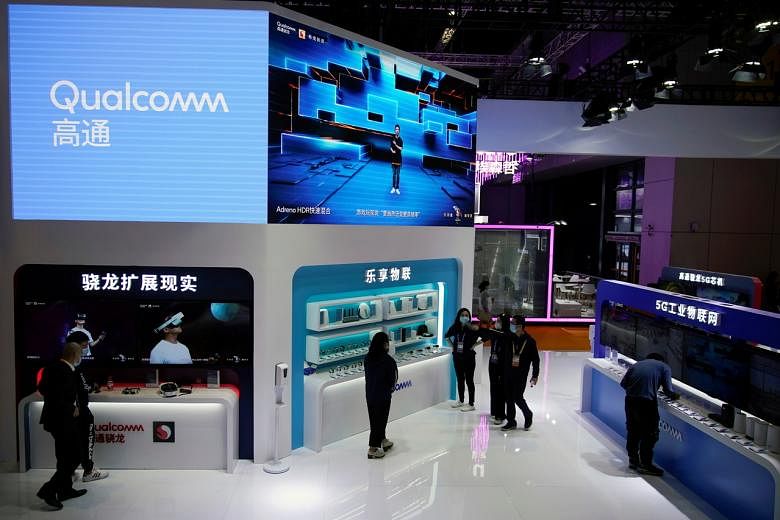WASHINGTON/BEIJING • The US Defence Department will soon start soliciting proposals for a programme to provide incentives to boost semiconductor manufacturing capabilities in the United States, according to a posting on a government contracting site.
Major American semiconductor firms such as Apple, Qualcomm and Nvidia rely on outside manufacturers such as Taiwan Semiconductor Manufacturing (TSMC) or Samsung Electronics to fabricate their chips in what are called foundries.
Most of those foundries are located in Taiwan and South Korea. While Intel operates US chip factories, they are mostly dedicated to manufacturing its own chips rather than doing work for external clients.
The Defence Department is looking to change that dynamic by providing incentives for the development of chip-related intellectual property and the creation of advanced foundries in the US, according to a notice posted on the website of the National Security Technology Accelerator, a non-profit group that works to connect private-sector companies with government contract opportunities.
The department plans to announce a programme called "Rapid Assured Microelectronics Prototypes-Commercial", or RAMP-C, that will complement existing programmes it recently launched to encourage US chip manufacturing.
In October, one of Intel's plants in Arizona won the second phase of a contract aimed at helping the US military develop advanced chips more quickly. TSMC, a major supplier to Apple, is also independently working to build a US$12 billion (S$16 billion) chip plant in Arizona.
Meanwhile, the US Commerce Department was expected to add around 80 more firms and affiliates - nearly all of them Chinese and including China's top chipmaker SMIC - to a trade blacklist yesterday, said two people familiar with the matter.
The move is seen as the latest in President Donald Trump's effort to cement his tough-on-China legacy, before President-elect Joe Biden takes office on Jan 20.
Yesterday, China's Foreign Ministry said that if true, the blacklisting would be evidence of US oppression of Chinese firms and that Beijing would continue to take necessary measures to protect their rights. "We urge the US to cease its mistaken behaviour of unwarranted oppression of foreign companies," ministry spokesman Wang Wenbin told a regular news conference in Beijing.
The designations by the Commerce Department are expected to name some Chinese firms that Washington says have ties to the Chinese military, including some which are helping it construct and militarise artificial islands in the South China Sea, the sources said.

